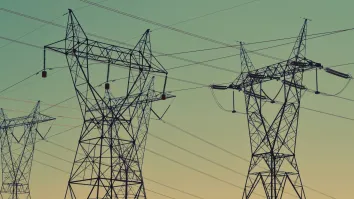Time for Asian powerhouses to launch domestic carbon trading markets
By Kishore ButaniAt the recently concluded climate change summit in Doha, Qatar, world leaders met and extended the carbon markets till 2020.
However, the general consensus among the carbon market players is that Europe and the US are no longer in the climate game. The Asian powerhouses (namely India and China) are the new players who the world will now need to look towards for leadership in tackling climate change.
The last 8 years of the carbon market has taught us enough lessons in designing a proper carbon market to make sure that renewable energy projects be rewarded at all costs and not polluters. The rules for earning carbon credits based on specific project types are already available and well documented both in the voluntary and compliance carbon programs.
We have also seen, with the Clean Development Mechanism and European Emission Trading System (EU ETS), how high entry costs and lengthy approval timelines drive investors away from carbon finance and only benefit industrial project activities at the cost of the rural poor low carbon projects.
Imagine for a moment, hypothetically, that you could drink and drive five times in a month provided you had a valid government issued permit or allowance. If the state gives you five permits for free but you only use three in a month, since your car is being repaired this month, you can potentially sell your extra permits to a friend to drink and drive on two more occasions. Stop imaging because this is how the carbon market actually functions in theory and there are millions being made by polluters who are currently holding carbon permits that remain unused (unused not because polluters were more energy efficient, but because of the industrial slowdown, lack of industrial production and the bank crisis in Europe and the US). Any incentive should ideally head towards those that abstain from drinking and driving in the first place.
The incentive for polluters to be given free emission allowances must be done away with in any new carbon mechanism. If a polluter curbs their carbon emissions below the enforceable cap, the reward should be that the polluter does not have to spend to purchase carbon credits from the market for that trading year, not, as is the current system, to be rewarded with tradable carbon allowances that can be sold to other polluters.
The powers in Asia who are designing their regional specific carbon markets need to keep the above fact in mind to avoid the pitfalls that plague the EU ETS.
The time has come (and some developing countries have already announced plans to launch their own regional carbon market mechanisms) for Asia and Latin America to immediately start work and launch regional-specific carbon trading platforms and/or exchanges.
Imagine the number of rural beneficiaries (who currently cannot afford the high European carbon market development costs) in China and India who will benefit immensely from local carbon exchange programs. Just think of the size of the carbon market when a direct and cross linkage develops between China, India, Vietnam, Brazil, Sri Lanka and South Korea among others.
Instead of shipping cheap Asian carbon credits to Europe, now each developing and emerging nation will reward renewable energy projects and participants with carbon credit or offset certificates to be traded on local carbon exchanges intended for polluters locally.
If Europe intends to ban international carbon credits (i.e. credits from developing nations) to save their doomed carbon market, it’s the prerogative of Asia to find value for their carbon credits in their respective domestic markets.
Far from the doom and gloom of the European carbon program, the Asian powerhouses can easily tailor their regional carbon markets to reward low carbon projects specific to each region locally.
Leadership is about taking action now and not waiting for guidance from Europe and the US on climate change.




















 Advertise
Advertise





